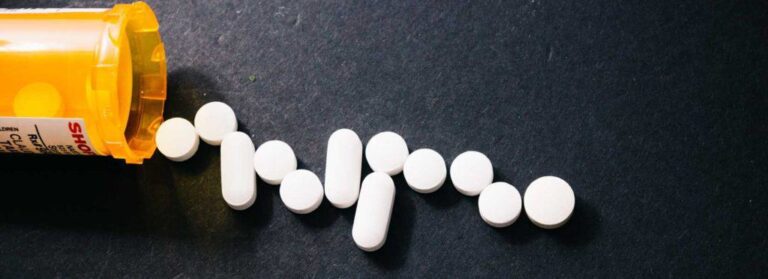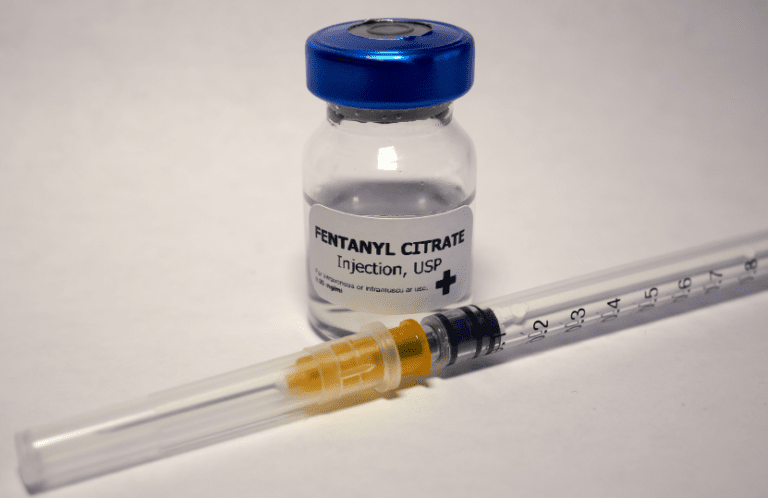Drug Interactions You Should Know About
What Is A Drug Interaction?
According to data released by the Health Policy Institute in 2021, roughly 66% of U.S. adults take prescription drugs. Many individuals are also taking more than one prescription drug on a daily basis. Whenever a person is taking a drug—and particularly when they are taking multiple drugs—they run the risk of a drug interaction. Essentially, a drug interaction is a reaction that occurs when taking two medications or a medication combined with a supplement, food, other substances, or a medical condition. Drug interactions can alter the medication’s effect on the body in various ways, such as causing the medication to be more potent, less potent, or causing unexpected side effects.
Types Of Drug Interactions You Should Know About
There are several categories of drug interactions that are important to be aware of, as drug interactions can in some cases be dangerous or even life-threatening.
Drug interactions you should know about include:
Drug-drug interactions
Drug-drug interactions can occur when taking two or more drugs, including taking multiple prescription drugs, mixing an illicit drug with a prescription drug, or mixing two or more illicit drugs. An example of a drug-drug interaction could be an individual taking two similar over-the-counter NSAIDs, such as Advil and Aleve. Combining more than one NSAID will not relieve pain faster, and in fact, could increase the risk of other side effects contributed to NSAIDs, such as stomach bleeding.
Drug-alcohol interactions
Drug-alcohol interactions may occur when consuming alcohol while taking a certain drug. Many drugs include warnings against the consumption of alcohol while taking them. Mixing a drug with alcohol may cause mild side effects such as drowsiness, but in some cases, such as with certain antibiotics, it can create a major digestive upset.
Drug-condition interactions
Drug-condition interactions occur when a person’s medical condition combined with a certain drug causes a reaction. An example of this would be a person with high blood pressure taking certain over-the-counter cold medications or nasal decongestants because decongestants narrow blood vessels, which can increase blood pressure.
Drug-food interactions
Certain foods, when combined with certain drugs, can cause a drug’s effects to be either amplified or lessened. An example of this is statins and grapefruit. Grapefruit can increase the amount of some statins in the blood and lead to greater side effects of the drug. One research study on “Food and Drug Interactions” concluded, “Some of the effects induced by food-drug interactions, such as an increase in the blood drug level, may have potential therapeutic benefits while some interactions may result in detrimental physiological effects.”
Drug-supplement interactions
Drug-supplement interactions can occur when taking both a drug and a supplement, such as an iron supplement or Vitamin D. Many people think of supplements as completely harmless, but it is important to consider the possibility of interactions with other drugs just to be safe.
How To Avoid Drug Interactions
Drug interactions are often avoidable by taking the proper precautionary steps and making sure you have all the information you need before taking a drug. Here are a few ways to help prevent a potentially severe drug interaction:
Read the labels
The labels and other materials that come attached to your prescription drugs can offer a lot of very important information, including the name of your medication, the quantity, and the dosage and frequency of the medication your doctor has prescribed to you. The labels can also provide information about possible drug interactions. For example, many prescription bottles may say “Don’t take with alcohol.” This is there for a reason, as it indicates a potential for adverse side effects or interactions when the drug is combined with alcohol.
Talk to your doctor and pharmacist
When discussing taking a new medication, make sure to discuss your medical conditions and any other medications you may be taking with your doctor and ask any questions you may have. You can also contact your pharmacist with any questions regarding drug interactions or dosing.
Use a drug interactions checker
Though it is highly recommended to check with your healthcare professionals directly, as they are experts who know your individual situation, you can also find details and information on drug interactions through certain websites that catalog drug interactions. Many of these provide search bars, so you can type in the name of your drug and the information on possible interactions will be provided. Make sure to cross-reference any information you find on the web with your healthcare providers.
What To Do When Experiencing A Drug Interaction
If you are experiencing a severe drug interaction, seek medical attention immediately. If you suspect you may be experiencing an interaction, such as upset stomach, nausea, or drowsiness, contact your doctor or pharmacist. They can provide you with information as well as suggestions on whether to stop taking the medication or possibly adjust the dosage or stop taking something that is interacting with the drug.
Though the internet is a place jam-packed with endless streams of information, it is not the best source of guidance for your medication intake. Medication and drug interactions, as we mentioned before, can be highly individualized based on a person’s genetics, medical conditions, lifestyle, and numerous other factors. It is best to reach out to an expert who knows your history and current status to receive accurate information and protect your health.
Struggling With Drug Abuse or Addiction? We Can Help
If you or someone you love has developed an addiction or dependence on drugs or alcohol, or has relapsed and are wondering how to get help, we encourage you to reach out to the professionals at Oasis Recovery, located in the heart of Asheville, North Carolina, to learn more about our personalized treatment programs and mental health services. Recovery is always possible. Our experts work with you to design a treatment plan that fits your needs. Common treatment programs include:
- Intensive Outpatient Programs (IOP)
- Full-time Addiction Treatment on campus
- Aftercare Services
Contact us today for more information about how our programs and services can help you get your life back on track.











